This article was co-authored by Zora Degrandpre, ND. Dr. Zora Degrandpre is a Natural Health Doctor and Licensed Naturopathic Physician in Vancouver, Washington. She is a grant reviewer for the National Institutes of Health and the National Center for Complementary and Alternative Medicine. She received her ND from the National College of Natural Medicine in 2007.
There are 14 references cited in this article, which can be found at the bottom of the page.
This article has been viewed 55,837 times.
When you are trying to improve your cholesterol numbers, it is important to lower your LDL (bad) cholesterol levels and raise your HDL (good) cholesterol levels at the same time. The recommended HDL level is 60mg per dL or higher.[1] Your doctor might have suggested some different medications to help with this process, but there are also some natural ways to improve your numbers. If you are trying to raise your HDL cholesterol, then you can start by making some important lifestyle changes, then work on your diet and maybe even try some supplements.
Steps
Lifestyle Changes
-
1Quit smoking. Smoking can make it harder to raise your HDL levels, so if you smoke, do your best to quit. By quitting smoking, you can raise your HDL levels by as much as 10%. Talk to your doctor to learn about smoking cessation programs in your area.[2]
- You can also visit the American Cancer Society’s website for guides to help you quit: http://www.cancer.org/healthy/stayawayfromtobacco/guidetoquittingsmoking/guide-to-quitting-smoking-toc
-
2Lose excess weight. Being overweight is also a factor in low HDL levels, so try to lose some weight if you are overweight. Set small, achievable goals. Losing even 5–10 pounds (2.3–4.5 kg) can lower your bad cholesterol.[3]Advertisement
-
3Exercise regularly. If regular exercise is not already a part of your lifestyle, then you should try to start an exercise routine. Walking for 30 minutes a day, 5 days per week is a great way to start, but you can try other types of exercise as well. Make sure that you choose an activity that you will enjoy so that you will be more likely to stick with your program. Some good options include:[4]
- Walking or jogging
- Biking
- Swimming
- Dancing
- Using an elliptical walker
- Practicing martial arts
- Ice skating or rollerblading
- Cross-country skiing
-
4Limit your alcohol intake. Drinking a moderate amount of alcohol has been linked with higher HDL levels, but you should not start drinking alcohol or begin drinking more alcohol as a way to raise your HDL levels. If you do drink, then limit yourself to 1 drink per day if you are a woman or 2 drinks per day if you are a man.[5]
- Do not drink in excess or you may experience negative effects from drinking. If you drink more than the recommended daily amount of alcohol, then you will be putting yourself at a higher risk for high blood pressure, stroke, certain cancers, obesity, accidents, and suicide.[6]
Dietary Changes
-
1Eliminate trans fats from your diet. Trans fats have a negative effect on cholesterol. They can raise LDL cholesterol levels while lowering HDL levels. To protect yourself from these negative effects, make sure that you avoid foods that contain trans fats, such as:[7]
- Packaged baked goods, such as pies, cookies, and crackers
- Margarine
- Nondairy coffee creamer
- Fried foods, like French fries, doughnuts, and fried chicken
- Refrigerated cookie dough, pizza dough, or biscuit dough
- Snack chips like tortilla chips and potato chips
-
2Eat more complex carbohydrates. Complex carbohydrates take longer for your body to process, so they will keep you feeling full longer and may even help you with your weight loss efforts. Eating complex carbohydrates will also help to ensure that you get more fiber, which can increase your HDL levels and lower bad (LDL) levels by causing you to excrete excess cholesterol. Some good complex carbohydrates include:[8]
- Oats
- Barley
- Millet
- Quinoa
- Buckwheat
- Rye
- Whole wheat bread and pasta
- Brown rice
-
3Limit red meats. Red meat contains a high amount of cholesterol, which can raise your bad cholesterol levels. Limit your intake of red meat as much as possible and when you do eat red meat, make sure that it is grass-fed (not corn-fed) red meat. Other good protein choices include:[9]
- Skinless poultry. It is important to avoid the skin because it contains a lot of fat and cholesterol, so it may raise your bad cholesterol levels.
- Fish. Wild-caught fish, such as salmon, cod, haddock, and tuna, are great sources of omega-3 fatty acids. Omega-3s are anti-inflammatory and they can also increase your HDL cholesterol levels.
- Beans. Beans contain protein and they are also low in fat and high in fiber. Try to include a serving or 2 of beans every day, such as black beans, garbanzos, white beans, and kidney beans.
-
4Increase all fruits and vegetables. Eating more fruits and vegetables will increase your fiber intake and it will also help to ensure that you are getting plenty of vitamins and minerals. Green leafy vegetables also have high levels of sterols and stanols, which may help to improve your cholesterol ratio. Make sure that your diet includes plenty of:[10]
- Leafy green vegetables, such as mustard, collard, beet, turnip greens, spinach, and kale
- Okra
- Eggplant
- Apples
- Grapes
- Citrus fruit
- Berries
-
5Drink more water. It is crucial to drink lots of water to help with the elimination process. Try to drink about 11.5–15.5 cups (2.7–3.7 L) of water every day.[11] You can add lemon, cucumber slices, or some fresh mint leaves to your water for some extra flavor.
- Try carrying a 1 L (4.2 c) water bottle around with you during the day and make it your goal to drink 2 to 4 bottles per day.
Supplements and Herbs
-
1Add a niacin supplement. Niacin (taken as niacinamide) is a B complex vitamin that can increase HDL cholesterol levels and lower triglycerides. To increase your HDL cholesterol, you can take a niacinamide supplement of no more than 1200 to 1500 mg per day. Check with your doctor for a specific recommendation and let them know about any other medications or supplements you're taking.[12]
- Make sure that you read and follow the manufacturer’s instructions for dosing as well.
-
2Take plant sterols. Plant sterol esters can help to increase HDL levels and lower LDL levels. Check with your doctor first to see if this supplement is a good choice for you.[13]
- You can also get plant sterols from eating seeds, nuts, and vegetable oils. Some foods are even fortified with sterols, such as orange juice and yogurt. Eating a couple of daily servings of sterol-rich or sterol-fortified foods may help to raise your HDL levels.
-
3Include an omega-3 supplement. Omega-3 fatty acids can lower LDL cholesterol and increase HDL levels as well. If you eat a couple of servings of omega-3 rich fish (such as salmon, mackerel, or sardines) each week, then you may be getting enough omega-3s.[14] If not, then taking a supplement may be useful.
- If you have high triglycerides, you can have 2-4 grams of EPA and DHA per day.[15]
-
4Consider taking a psyllium supplement. Psyllium is a bulk-forming laxative, which may help your body to excrete more LDL cholesterol and increase your HDL cholesterol levels. Try taking a daily blond psyllium husk supplement to support this process.[16]
- Try taking 2 teaspoons of psyllium husk powder every day. This amount has about 4 grams of fiber.[17] Make sure that you read and follow the manufacturer’s instructions for use.
When to Seek Medical Treatment
-
1See your doctor as often as recommended for cholesterol tests. For most healthy adults with no risk factors for heart disease, it’s recommended that you get your cholesterol levels tested once every 5 years. If you are at risk, or if a test has revealed that you have unhealthy cholesterol levels, your doctor will probably recommend more frequent tests (e.g., once a year).[18]
- These tests can help you and your doctor determine if the treatments you are trying are effective. Your doctor might recommend lifestyle changes or medications based on the test results.
-
2Talk to your doctor about making dietary or lifestyle changes. Before making any major changes to your diet or lifestyle, discuss it with your doctor. They can help you determine whether the changes you’d like to make are safe, effective, or appropriate for you.
- For example, if you have heart disease or a condition that affects your joints, you should ask your doctor what kinds of exercise you can do safely.
- Tell your doctor about any vitamins or dietary supplements you are taking or planning to take, since these can interact with other medications or supplements.[19]
-
3Discuss any medication changes with your doctor. If your doctor prescribes medications to help manage your cholesterol levels or any related conditions, take them as prescribed.[20] Don’t stop taking your medications or change your dose without getting your doctor’s approval first.
- Let your doctor know if you experience any side effects from your medications, such as muscle pain, confusion, or memory loss.
-
4Seek emergency care if you have symptoms of a heart attack or stroke. While unhealthy cholesterol levels don’t cause any symptoms in and of themselves, they put you at risk of more serious health problems. People with high “bad cholesterol” and low “good cholesterol” have a higher chance of developing heart disease or having a heart attack or stroke. Go to the emergency room or call emergency services if you experience symptoms such as:[21]
- Chest pain, tightness, or pressure
- Pain that radiates into your shoulder, arm, back, or jaw
- Dizziness or lightheadedness
- Difficulty breathing
- Nausea
- Sudden numbness or weakness on one side of your face or body
- Confusion
- Sudden loss or change of vision in one or both eyes
- A severe headache that starts abruptly
References
- ↑ http://www.mayoclinic.org/diseases-conditions/high-blood-cholesterol/in-depth/hdl-cholesterol/art-20046388
- ↑ http://www.mayoclinic.org/diseases-conditions/high-blood-cholesterol/in-depth/hdl-cholesterol/art-20046388?pg=2
- ↑ https://www.mayoclinic.org/diseases-conditions/high-blood-cholesterol/diagnosis-treatment/drc-20350806
- ↑ http://www.mayoclinic.org/diseases-conditions/high-blood-cholesterol/in-depth/hdl-cholesterol/art-20046388?pg=2
- ↑ http://www.mayoclinic.org/diseases-conditions/high-blood-cholesterol/in-depth/hdl-cholesterol/art-20046388?pg=2
- ↑ http://www.heart.org/HEARTORG/GettingHealthy/NutritionCenter/HealthyEating/Alcohol-and-Heart-Health_UCM_305173_Article.jsp#.Vp0WOPkrLIU
- ↑ http://www.mayoclinic.org/diseases-conditions/high-blood-cholesterol/in-depth/trans-fat/art-20046114
- ↑ http://www.health.harvard.edu/heart-health/11-foods-that-lower-cholesterol
- ↑ https://www.heart.org/en/healthy-living/healthy-eating/eat-smart/nutrition-basics/meat-poultry-and-fish-picking-healthy-proteins
- ↑ http://www.health.harvard.edu/heart-health/11-foods-that-lower-cholesterol
- ↑ https://www.mayoclinic.org/healthy-lifestyle/nutrition-and-healthy-eating/in-depth/water/art-20044256
- ↑ https://www.mayoclinic.org/diseases-conditions/high-blood-cholesterol/in-depth/niacin/art-20046208
- ↑ https://www.ncbi.nlm.nih.gov/pmc/articles/PMC1852556/
- ↑ https://my.clevelandclinic.org/health/articles/17290-omega-3-fatty-acids
- ↑ https://my.clevelandclinic.org/health/articles/17290-omega-3-fatty-acids
- ↑ https://www.mayoclinic.org/diseases-conditions/high-blood-cholesterol/in-depth/cholesterol-lowering-supplements/art-20050980
- ↑ http://www.health.harvard.edu/heart-health/11-foods-that-lower-cholesterol
- ↑ https://www.mayoclinic.org/diseases-conditions/high-blood-cholesterol/symptoms-causes/syc-20350800
- ↑ https://www.mayoclinic.org/diseases-conditions/high-blood-cholesterol/diagnosis-treatment/drc-20350806
- ↑ https://www.mayoclinic.org/diseases-conditions/high-blood-cholesterol/diagnosis-treatment/drc-20350806
- ↑ https://www.mayoclinic.org/diseases-conditions/high-blood-cholesterol/symptoms-causes/syc-20350800
About This Article
To increase HDL cholesterol naturally, eat fish, skinless chicken, or beans instead of red meat, which contains a lot of cholesterol. Additionally, include more fruits, vegetables, and complex carbohydrates, like oats, brown rice, and whole grain bread, in your diet. You should also exercise at least 5 days a week for 30 minutes at a time. If you smoke or drink alcohol, try to quit or limit your consumption, since alcohol and cigarettes can make it harder to raise your HDL levels. For more tips from our Medical co-author, including how to use herbs and supplements to increase your HDL cholesterol, read on!
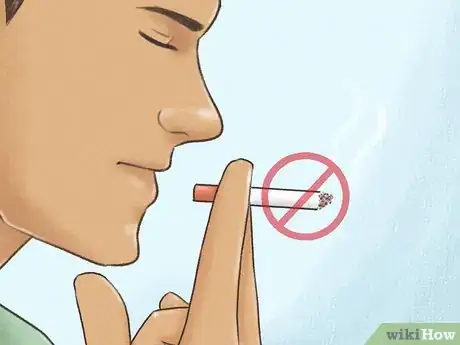
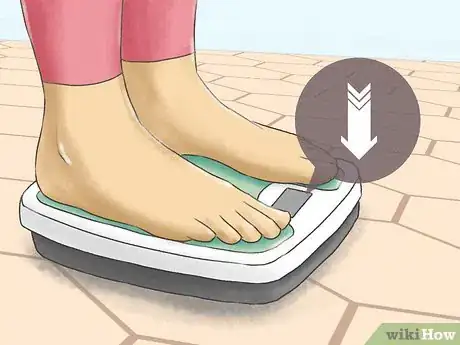

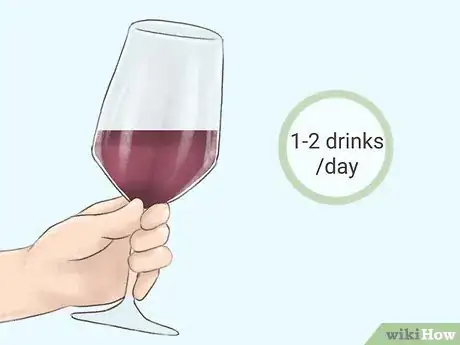
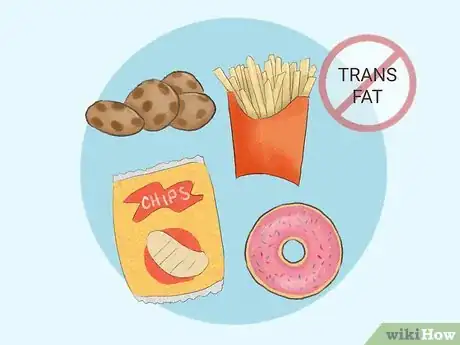
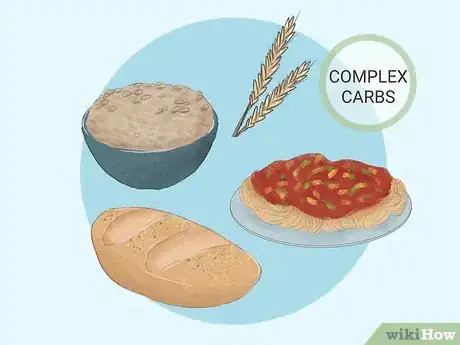
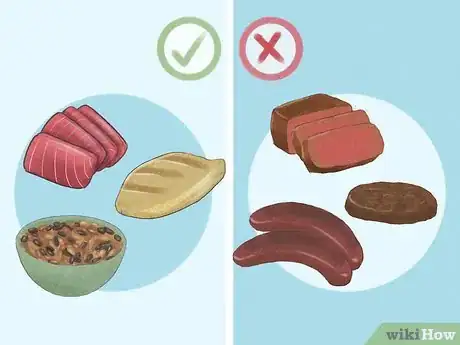
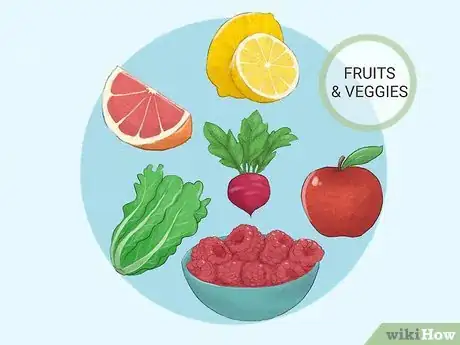
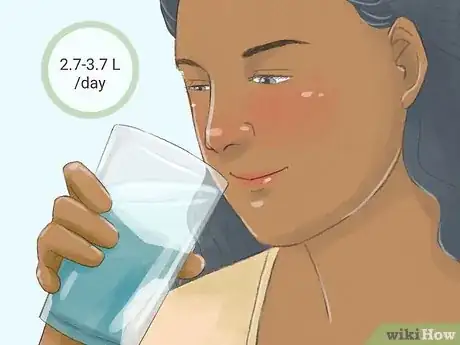
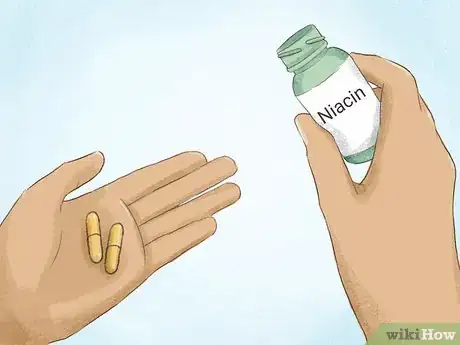
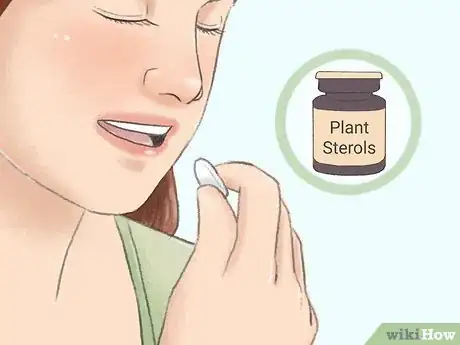
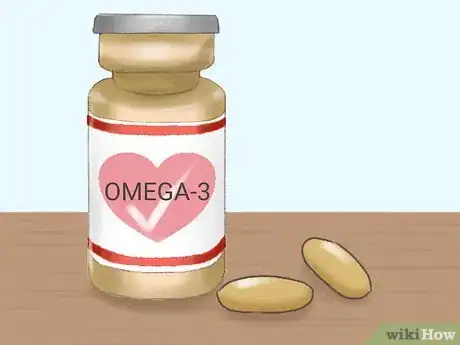
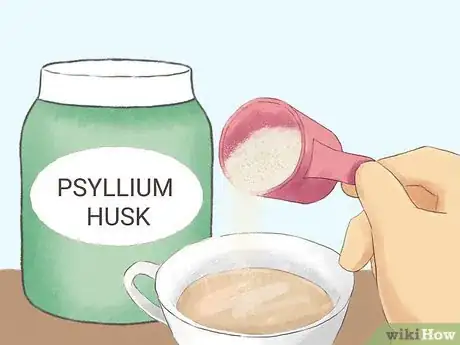
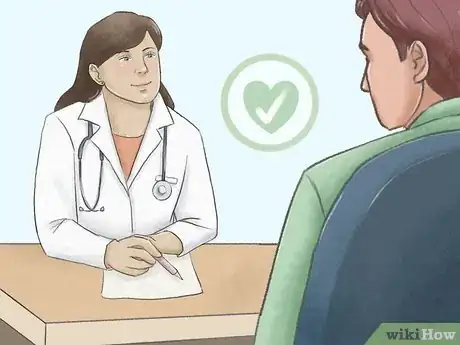
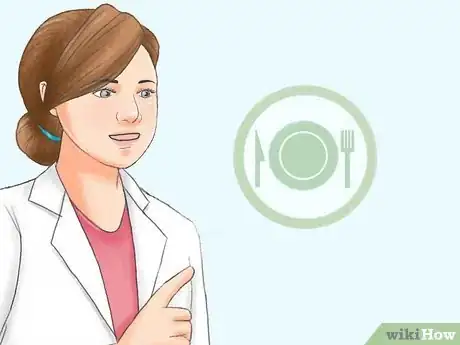

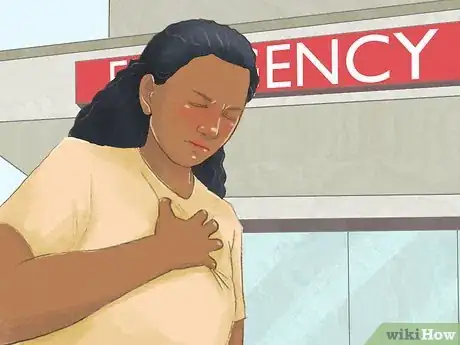
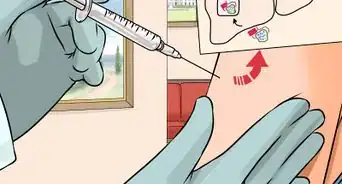

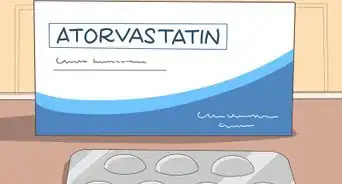



















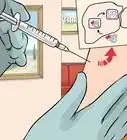

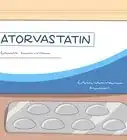




































Medical Disclaimer
The content of this article is not intended to be a substitute for professional medical advice, examination, diagnosis, or treatment. You should always contact your doctor or other qualified healthcare professional before starting, changing, or stopping any kind of health treatment.
Read More...